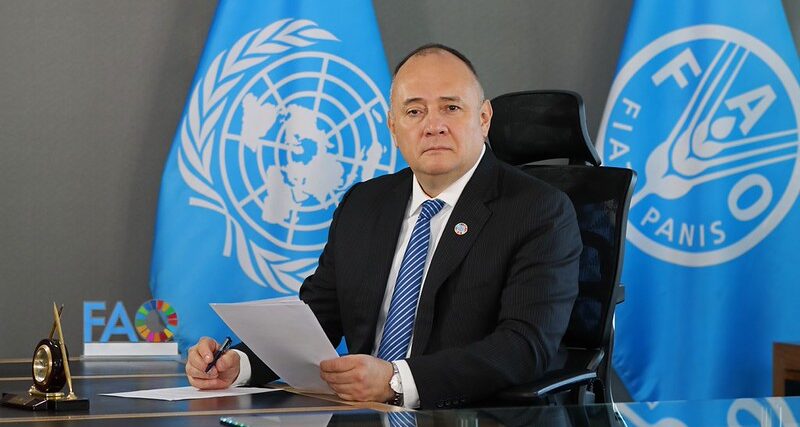Climate change has transitioned from a distant threat to an immediate reality, profoundly impacting agrifood systems and jeopardizing global food security. Its effects are multifaceted, influencing agricultural yields, water resources, pest dynamics, disease proliferation, and even the nutritional value of crops due to changes in atmospheric CO₂ levels. In 2024 alone, climate shocks triggered food crises in 18 countries, leaving 72 million people in severe food insecurity. Hurricane Mellisa, which devastated Jamaica, Haiti, and Cuba, serves as a stark reminder of the destructive power of such events on food systems. Over the past 50 years, climate change has reduced global cereal yields by 2%-5%, with maize yields in Latin America declining by approximately 5%. Since 1961, global agricultural productivity has dropped by 21%, equivalent to losing seven years of progress. These alarming statistics underscore the urgent need to transform agrifood systems through accelerated mitigation and adaptation measures. However, achieving this requires addressing a significant financing gap. In 2023, only 4% of climate-related development financing was directed toward agriculture, livestock, fisheries, and forestry, leaving vulnerable nations ill-equipped to adapt and transition to sustainable models. To build resilient and sustainable agrifood systems, climate financing must prioritize agriculture and rural livelihoods. Without adequate resources, international commitments will remain hollow promises. COP30 emerges as a pivotal moment to address these challenges. Initiatives like the Tropical Forests Forever Fund (TFFF), spearheaded by Brazil with World Bank support, aim to mobilize $25 billion from countries and $100 billion from private investors for global forest conservation. This innovative approach highlights the economic potential of sustainability. The early approval of the COP30 agenda reflects political will to advance climate financing, energy transition, and resilience. However, translating commitments into actionable targets with clear deadlines and real resources is essential. The FAO is championing strategies that integrate mitigation and adaptation, such as integrated fire management, supported by 50 countries. COP30 must place agriculture, food security, and the role of Indigenous Peoples and rural communities at the forefront of global discussions. The future of food, sustainability, and global stability hinges on COP30 marking the dawn of a new era in climate action centered on agrifood systems.
